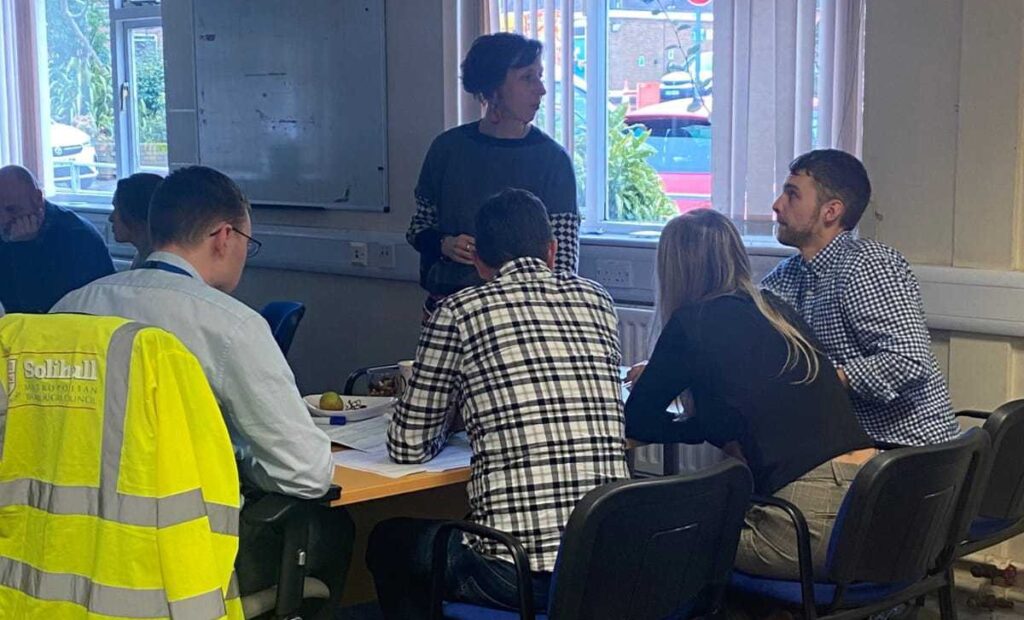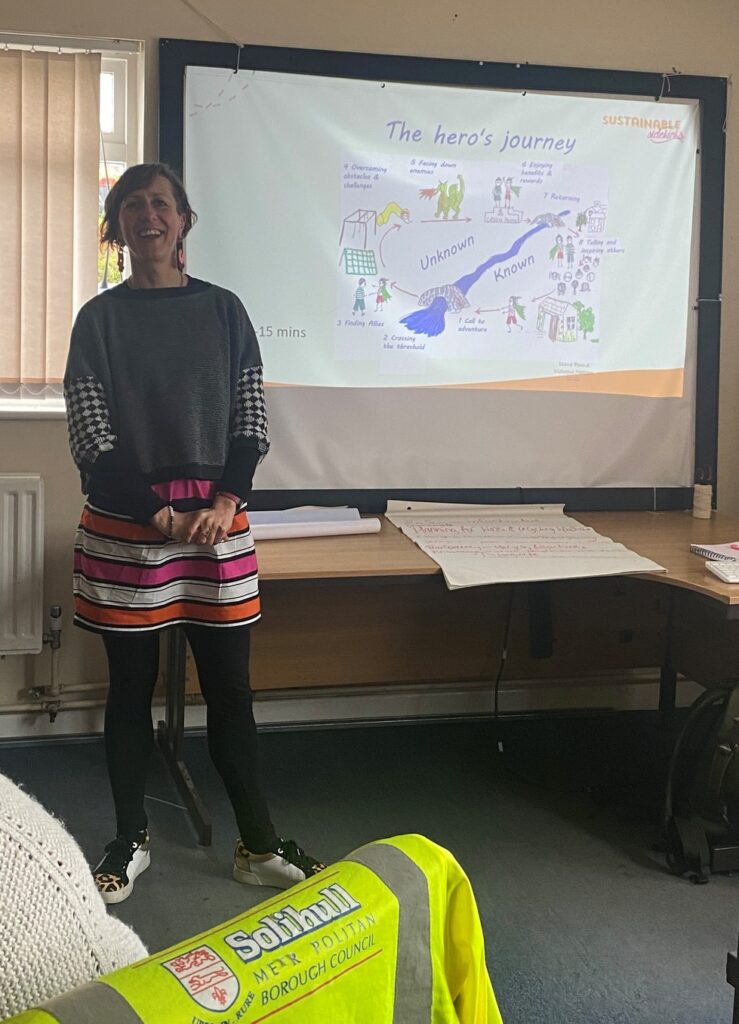
Tools to tackle local authority waste challenges
Like many other UK local authorities, Solihull are working to change behaviours to reduce littering, and recycling contamination, as well as, introducing food waste collection from households.
A one-day face-to-face workshop was commissioned for the Waste and Recycling Team and their Street Care and Parks colleagues to upskill the team and support the development of their campaigns.
Audience segmentation
To get specific on the campaigns and to allow the team to think about their audiences as segments rather than just everyone, each table had a target behaviour and a persona map to complete to bring a specific socio-economic- demographic to life.
Recycling-specific personas were used from the WRAP- DEFRA audience segmentation tool

Journey mapping
By spending the morning journey mapping the barriers to the ideal behaviour and the motivators for the existing undesirable behaviours, the team identified what was driven by cognitive shortcuts, social influences or infrastructure. For example, the table considering the Honestly Disengaged, living in social housing who didn’t recycle identified barriers such as:
- Other priorities and concerns day-to-day
- Lack of infrastructure and space in their property
- Lack of visibility of others recycling in their housing estate
Campaigns that work
Using the Campaigns that Work wheel, a framework for applying behavioural economics to campaigns, the team considered up-and-coming campaigns to:
- Check they were avoiding the common pitfalls such as reinforcing undesirable behaviours by using bad norms e.g. X% of people are littering
- Being wary they weren’t just relying on altruistic messages e.g. do it for the environment or community
- Focusing on positive social norms, emotions and being specific about the actions they were asking people

Key takeaways from participants
- Research:
- To gather insights from local community groups
- Communication campaigns
- Piloting campaigns to test what behaviour change principles work
- Use more social norming messages
- Campaign planning
- Using socio-economic data to segment audiences
- Journey mapping to identify how to make behaviours easier for people
- Considering the social influences to behaviours
- Think like the audience and not own perspective or values


‘It was useful for the team to spend the day focussing on the subject of engagement and to be able to concentrate on solutions without the day-to-day distractions of work. The workshop also presented the opportunity to work with different teams which was beneficial from a team building perspective and to get different views on the scenarios developed throughout the day.
There was a lot of information to get through in a short amount of time, but the pacing and balance of the exercises and presentations were just right. We had really positive feedback from the teams at the end of the session and it has certainly given us some additional tools to use when developing our future campaigns.’

